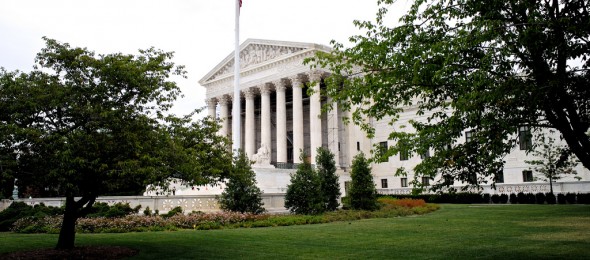Maria Glover, Associate Professor of Law at the Georgetown University Law Center, has authored an interesting scholarly article entitled, Disappearing Claims and the Erosion of Public Law, Yale Law Journal, Vol. 124, Forthcoming. In her paper, Professor Glover argues that recent United States Supreme Court arbitration jurisprudence has effectively undermined lawmaking by shifting dispute resolution from the courts to the private realm.
Here is the abstract:
The Supreme Court’s arbitration jurisprudence in the last five years represents the culmination of a three-decade long expansion of the use of private arbitration as an alternative to court adjudication in the resolution of disputes of virtually every type of justiciable claim. As scholars have traced, privatizing disputes that would otherwise be public may well erode public confidence in public institutions and the judicial process. Accordingly, many observers have linked this decades-long privatization of dispute resolution to an erosion of the public realm. In this piece I argue that the Court’s recent arbitration jurisprudence undermines the public law itself.
Indeed, whereas the shift from dispute resolution in courts — the public realm — to dispute resolution in arbitration — the private realm — initially undermined values of adjudication, the shift from public lawsuits to private arbitration now also threatens values of lawmaking. This new threat to the lawmaking function stems from the Court’s authorization of mandatory private arbitration clauses as a way for private parties to construct procedural rules that have the foreseeable — indeed, possibly intended — consequence of rendering those claims a nullity. The Court’s recent arbitration jurisprudence thus threatens the values of public dispute resolution in a fundamentally new and more dramatic way. Through the procedural device of private arbitration, private parties can effectively rewrite substantive law by precluding or severely impeding the assertion of certain types of civil claims. And they can do so almost entirely outside of public view, through commercial (and sometimes) confidential contracts subject to virtually no public scrutiny or regulatory oversight. In short, the Court has handed private parties the power to recalibrate substantive legal obligations, and because this power is largely unchecked, there is currently little to stop this erosion of public law.
This and other publications written by Professor Glover may be downloaded for free from the Social Science Research Network.
Do you agree or disagree with Professor Glover? We would love to hear your thoughts.
Photo credit: romanboed / Foter / CC BY














